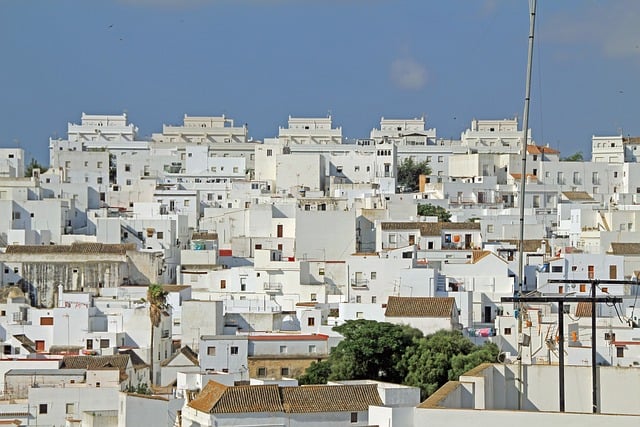Inflation and the ongoing cost of living crisis, combined with rising interest rates, have made buying property more difficult in recent months. This is especially true in Spain, and especially true for young people.
In particular, rising Euribor rates (and the effect on mortgages) mean many feel locked out of the property market. Euribor is the interest rate most often used to work out mortgage payments and to calculate both variable and fixed rates.
It’s anchored to the interest rate set by the European Central Bank, and, as we have seen over recent months, quite responsive to global economic events.
READ ALSO:
- Spanish mortgages – Ten things foreigners should know before getting one
- What the Euribor rise means for property buyers and owners in Spain
This combination of factors means that for whatever reason, many people in Spain who want to purchase property can’t, and are forced to stay in the incredibly inflationary rental market, often spending half (or more) of their monthly income on rent, meaning they’ll never be able to save for a deposit and trapping them in a never-ending cycle.
As a way to try and break this, one option that some young people in Spain are now exploring is buying a house or flat as a group, whether with friends or family.
This is one way that younger people can get on the property ladder, but it isn’t without its complications.
The concept
In Spain, you can buy a house or flat as a couple or a group. In theory, this could be as many people as you like, but as well see later on, when a property is co-owned by several people, things can get complicated.
Co-ownership or joint ownership of a property (known as copropiedad in Spanish) exists when a property is owned by two or more people. In Spain, the property belongs in percentage terms to each person that has contributed to the purchase, rather than owning specific parts of the house such as one party owning the kitchen, another the living room, and so on.
Now, if this were a couple, for example, it’d be a simple 50/50 split.
But if, say, four people decide to buy a property and become co-owners, each of them will own (or be entitled to, at least) 25 percent of the freehold, unless they stipulate a different percentage before signing anything.
The contract
But what do they sign?
According to Spanish property website Fotocasa, in order to be able to buy a property through co-ownership in Spain, you must create what is legally called a ‘comunidad de bienes‘, which is essentially a company without legal status.
Comunidad de bienes are extremely common, for example, when a property is inherited and split between family members and they form one to jointly own and manage the property, though it is an option becoming increasingly popular among friends too.
This is how a group purchasing a property in co-ownership legally commits themselves to pay their share of the mortgage payments, depending on the agreed percentage in the contract, as well as community fees, municipal taxes, possible home improvement costs, and any other shared expenses. Simply put, the comunidad de bienes is the legal declaration that you agree to be a part owner of the property, member of the group, and be responsible for your part in any expenses.
READ ALSO: ‘La comunidad’: What property owners in Spain need to know about homeowners’ associations
For this purpose, a contract must be drawn up in which all the terms and conditions of the comunidad are stated, such as the contributions made and the responsibilities of each owner, depending on the percentage of the property that contractually corresponds to them.
The document must also state the reason for which the property has been acquired; that is to say, whether it is a primary residence, summer house, or a buy-to-let property.
You must also register the community with the Spanish Treasury with form 036 (which you can find here) and pay the so-called Documented Legal Acts Tax, which, depending on which part of Spain you live in, may be around 1-1.5 percent of the value contributed.
You must also legally register the community with the Economic Activities Tax (IAE), though it is worth noting that so-called companies without legal status (as is the case with a comunidad de bienes) are exempt from actually paying the tax.
Advantages
Clearly, splitting the costs of a house deposit, mortgage and expenses works out cheaper between four people than it does one or two.
For many, a co-ownership might be the only way they can get a foot on the property ladder, even if they don’t own 100 percent of it outright.
If you’re in a committed relationship or long-term friends with the other members of the group, there are also clear social benefits too.
Disadvantages
However, there are also some potential disadvantages to entering into a comunidad de bienes and purchasing a property as a group.
The main ones are potential non-payment (of the mortgage or expenses) from one party, or if one but not all the partners in the comunidad want to sell and, therefore, break the contract.
In this case, the other co-owners would have two options: to buy them out and pay for their share or to jointly sell the property.
In the event of non-payment, debtors or banks can claim the debt back from any co-owner, that is, any member of the comunidad, and therefore there is the risk that the debt can be passed on to other members, as well as potentially having to pay the associated late payment costs and interest.
What about taxes?
Regardless of whether you buy a home individually or jointly, you still have to pay taxes on the transaction.
This will include the VAT, or IVA in Spanish, which is 10 percent on new build properties, or pay a property transfer tax on a second-hand house, something probably far more likely if you’re forming a comunidad de bienes to spread the cost among a group.
The Impuesto de Transmisiones Patrimoniales (known as ITP) is the tax that applies to the transfer of ownership of a second-hand property in Spain. It varies across Spain’s regions, and generally ranges from 4 percent to 10 percent depending on where your property is.
READ ALSO: How to avoid paying Spain’s ITP tax when buying a second-hand home
Our journalists at The Local are not legal property experts, and it is always recommended that you consult proper legal advice to guide you through the process of purchasing a property in Spain.



 Please whitelist us to continue reading.
Please whitelist us to continue reading.
Member comments